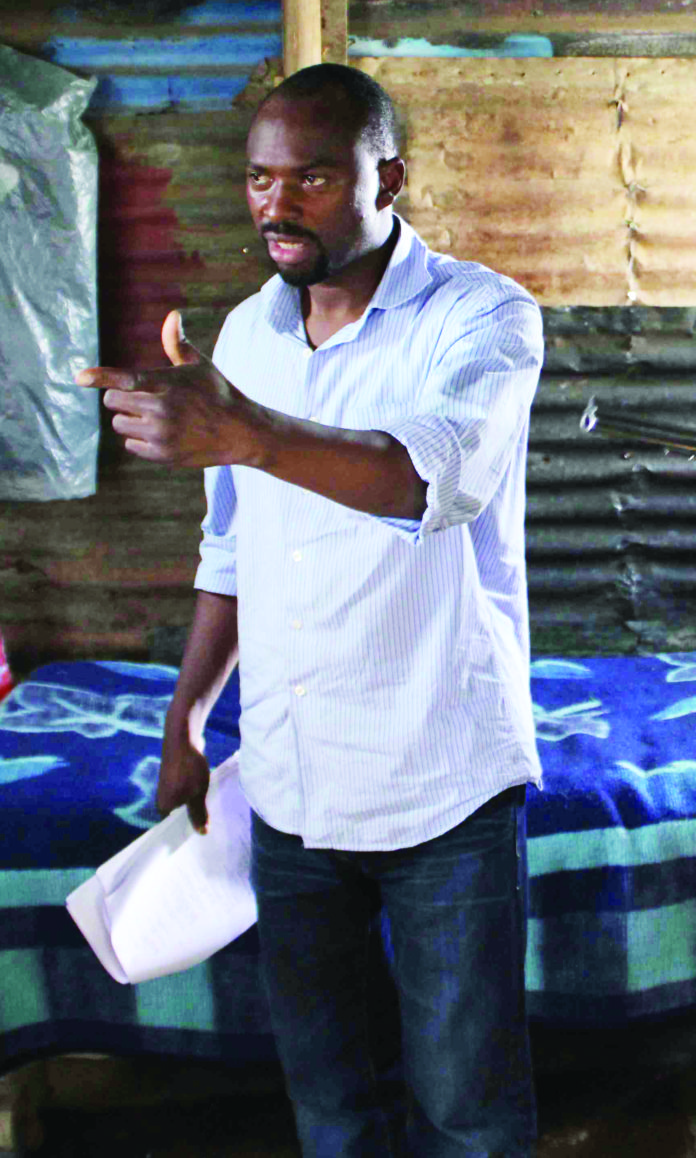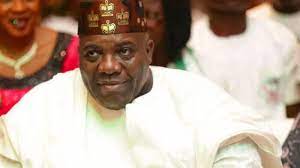Adze Ugah is a Nigerian filmmaker based in South Africa. His recent film, which has been making the cinema rounds in Africa and beyond is a romantic comedy titledMrs Right Guy.In this interview with Assistant Life Editor, TERH AGBEDEH, he talks about the film, the industry in Africa and so much more.
This, Mrs Right Guy, is your first feature, yeah?
Not really; my first feature was what you could call a real “home video”. It was shot on a super VHS camera. We tried to make it a period piece, so it is set somewhere in the early 1900. I shot it with friends and family in 2000 in our FadanKarshevillage in Southern Kaduna.It is called VIYA. My late sister was the lead of the film, which won the National Film and Video Censors Board (NFVCB) award for Film of the Month. My second feature was a South African film called Gog’Helen, shot in 2012, and then of course, Mrs Right Guy followed in 2014, though it was only ready for release in 2016.
How different is directing Mrs Right Guyfrom the many television series and documentaries you have been involved with?
It’s not too different; there is more time for preparation for a feature film though, since money is attached to the project. And when making movies, preparation is everything. Documentaries usually take longer, but the budget is usually less than those of feature films or a high-end TV series.
Although Mrs Right Guy premiered in South Africa last year, did you enter it for the African Movie Academy Awards (AMAA) or any award for that matter?
Yes, the producers entered it into the AMVCA (Africa Magic Viewer’s Choice Awards).
Should we dream of a Nigerian premiere with all the razzmatazz?
No, the film’s release is not a major one; it is only showing in about eight cinemas. A film is normally preceded by a major premiere as part of its marketing strategy when it’s a major release, with over 40 screens.
Are you looking at taking the film to festivals?
This is the producer’s prerogative. I personally don’t think the film is a festival material; it’s (rather) a feel-good romcom.Festival films are usually more visceral and cerebral. But film festivals tend to invite flicks which they feel will have a mass audience appeal. So far, the film has been to the BRICS Film Festival in India, and has been invited to FESPACO (in Ouagadougou, Burkina Faso). So we’ll just have to wait and see.
The publicity the film is getting makes it look like a big budget film.
The publicity a film gets is really a function of its marketing strategy, which is not always proportional to its budget.Some films have big budgets and poor marketing while some have small budgets but major marketing.
In South Africa, Mrs Right Guy would be considered a standard budget, which is in the middle range and about $300,000. The marketing it is enjoying so far is a function of the producer’s faith in its ability to travel far and find an audience.
Are you in touch with your Nigerian counterparts?
Daily.
Are you open to collaboration with Nigerian filmmakers or have you started that already?
That has already been done.All About Lovethat I directed for Diamond Groove Pictures, the company behind TV series such as Legacy and films such as I come Lagos and A Million Colours, features South African and Nigerian actors.
Why is this film significant at this point in time?
Films are really just products, like cell phones, cars, clothes, or any other item of trade. Films are not made because people want to make the films and then just pat themselves on the back afterwards. Films cost money to make and therefore they should make money for the producers and those involved. It is a business. And if a film has the potential of reaching a wide audience and making money, then it has earned the right to be made, just like any other business item.
Why did you make it?
I am film director and I get approached with projects all the time; some I turn down and some I say yes to. Why I agreed to direct Mrs Right Guy was because it was the first time I was engaging with a romantic comedy (romcom)script. It was a new territory for me and I wanted to see how I would fare and how the film would fare as well.
What made you want to make films?
I love films and I love the way I get affected by the art and craft of storytelling. Films provide audiences with the opportunity to reflect or escape, sometimes, even both. I suppose I wanted to be able to replicate the same effect in audiences through my films.
Since finishing at the film school in Jos, have you gone on further film studies?
My main reason for coming to SA was to further my studies in film, which I was able to do to a post-graduate level in 2003.
As a Nigerian who lives and works in South Africa, you must have experienced xenophobia first-hand; how would you describe the experience?
I doubt if anyone would find such an experience pleasant. But when one does encounter such, it is one’s responsibility to try and enlighten those guilty of such behaviour, either with words or actions, with the understanding that the attitude comes from an ignorant place and if one can shine light on the issue, one succeeds in diminishing the fabric of xenophobia, one person at a time. I was fortunate enough to be able to do that at a mass level with my 2008 documentary called The Burning Man, which has screened in festivals all over SA, and shown several times on SA Television. But, personally, my experience with my SA counterparts has been mostly pleasant. It is sad though that not everyone has the same experience as I have had.
The film industry in South Africa, though ‘younger’ than Nollywood, seems to be very organised; what lessons do you think we can learn from it?
Th South African film industry is as old as the Nigerian one, maybe even older. Thanks to our population in Nigeria and indeed the diaspora, our industry enjoys a huge internal market but this only began around 1989 and 1990 with the advent of home movies. Film is a business; it is an economic earner, just like oil, agriculture and manufacturing, potentially adding billions to any nation’s GDP. It will be silly of any government to ignore that. The South African government recognised this ages ago and focused investment and legislature in terms of distribution and production, that is designed to ensure that the industry thrives. This is what is responsible for what you refer to as “organised”. Nigeria must just simply do the same.
What do want people to takeaway from the Mrs Right Guy project?
Mrs Right Guy is a romcom, and these films by nature are light, feel-good, easy viewing films. If any one feels that way after watching the film, and is inspired to be romantically inclined, then my job has been done.
How has your life changed since the release of the film?
Even before it was finished, I had moved on to other projects, it’s just another film in my filmography.
About opportunities, are there film grants that you think your Nigerian counterparts can draw on for their film projects?
There are several international film funds and grants that are available for film makers all over the world. The funds are granted on the strength and merit of the script or idea one wants to produce. So, if anyone is interested in accessing these funds, then simply ensure that the script or idea is rock solid and above par.
If you had to work with a Nigerian actor on a project, who would it be?
There are so many Nigerian actors that I would love to work with.
What is the feedback you have been getting since Mrs Right Guy hit the cinemas?
Some like the film and some don’t, and that is okay. Some are not into romantic comedies and some are; it’s the nature of the business. It applies to food,music, anything artistic. But I know it is the only South African film to play in Nigerian cinemas that has enjoyed this degree of success in terms of how long it has stayed in the cinemas and box office returns. Most SA films don’t even last two weeks in the Nigerian cinemas. So, we have been lucky.
It appears it is showing all over Africa; how have the different audiences been responding?
We are still waiting for the figures to be compiled.
What do you read for fun?
I read a lot of non-fiction.
How do you like to spend your free time?
Watching movies, being with family.
What inspires your work; if possible describe a real-life situation?
I get inspired by stories of everyday people caught up in extraordinary situations, to quote a cliché, but it is true for me.
What is your favourite song, music video, movie and book?
I really do have several favourites, to pin-point one of each will be a great disservice to all the others that I believe equally have merit













